Free and open source software (FOSS) is amazing. Webopedia defines FOSS as “FOSS programs are those that have licenses that allow users to freely run the program for any purpose, modify the program as they want, and also to freely distribute copies of either the original version or their own modified version.”. Open source has come along way in the past couple of decades. Linux which is FOSS software, is a good candidate for the most influential and important software in the computer industry. Android phones are based on it and many routers, embedded devices and many servers on the Interwebs use it.
There are a few FOSS phone systems. The two most mature and popular are Asterisk and FreeSwitch. So if you want a free phone system then one of these may be of interest.
Below is what it will take to install, configure and get a system production ready:
- for hardware:
- a PC, Raspberry Pi, or virtual machine instance on a server;
- POTS gateway for analogue trunks or PRI gateway for PRI trunks;
- ATAs for any analogue phones;
- good computer skills with a good understanding of Linux;
- knowledge of programming routers and computer networks;
- knowledge of Wireshark for troubleshooting;
- Ethernet cabling skills;
- lots of reading and learning.
The above list looks daunting and is certainly not for everyone. It is enticing from a cost perspective. A Raspberry Pi, which can handle at least 10 concurrent calls, will set you back approximately $100. If you opt for SIP trunks which you can purchase from TELECO, then you will not need any gateway hardware. All calls will travel over the IP network and Internet. So your only other cost would be phones. You can pick up a basic SIP phone for around $60. If you are used to an IP Office phone like a 9608G or 9508 with tons of options, then you will be very unimpressed with the basic SIP phone. But if all you want to do is make and take calls, the SIP phone works fine. The next step would be to run Ethernet cable to each location you want a phone. You may already have a cable in place and most SIP phones have a switch port on the back to daisy chain to your computer. In that case cabling may not be necessary.
Installing and configuring the software requires a good understanding of Linux and phone systems.
There is a ton of information free of charge on the Internet for both Asterisk and FreeSwitch if you need to learn or for troubleshooting issues. You can purchase support for Asterisk from Digium and for FreeSwitch from FreeSwitch solutions. There is also, strong community support forums for most FOSS systems if you are not interested in purchasing support. When setup up correctly open source phone systems work well. Expect to support and service the phone system yourself unless you purchase a support contract.
If you do not want to entertain an open source phone system yourself for any one of many reasons, TELECO can help. We do not service nor support open source phone systems. We do however service and support 100% of what we do sell. The IP office platform is a mature, full featured hybrid phone system. It can easily support analogue, digital, IP phones and any form of trunking. Sure the IP Office will cost more money than the FOSS phone systems but you do not need to install, service and support the system yourself. TELECO offers 24/7/365 service and support.
Everyone wants to lower costs but the phone system is not the place to skimp for many businesses. The simplest cost savings method would be to switch from standard copper trunks or PRI trunks to SIP trunks. SIP trunks are cheaper than either of the other two options and are transported over your Internet service.
If you want to learn more give our knowledgeable sales staff a call at 346-7264 or email at landlinesales@teleco.ca.
